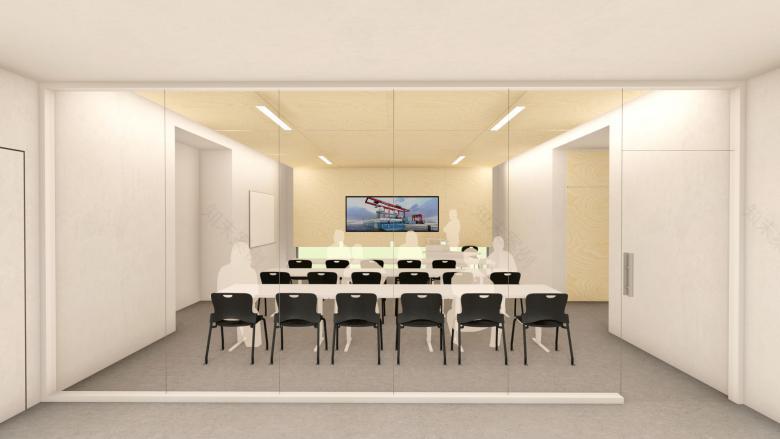查看完整案例

收藏

下载

翻译
建筑师:SRG Partnership
位置:6550 Liberty Lane, 97103 Astoria, OR, 美國
年份:2023
客户:Clatsop Community College MERTS
Honoring the region’s maritime heritage and identity
The Maritime Science Building will elevate Clatsop Community College’s coastal educational program as it continues to grow into the most comprehensive industrial and marine technology center in the Pacific Northwest. This is a vital facility for Maritime education; people come from all over the country and the world to train in Astoria. The Columbia is one of the most treacherous inlets to pass and there are few facilities that offer these programs.
Site
Located adjacent to the Columbia River, the MERTS Campus sits on land that was dredged from the riverbed. The soil is sandy and silty, creating a high risk of soil liquefaction in a seismic event. A key challenge for the project was how to hold up a building on such unstable land. The design team collaborated with geotechnical and structural engineers to develop a unique solution. Nearly 11,000 rock piers, drilled 60-ft down to bedrock, cover 75% of the footprint, plus 10 feet surrounding the building, stabilizing the structure. It’s an expensive process, so the team limited the square footage of the main floor and the necessary foundation size required to support it. To accommodate the rest of the program, a large second floor cantilevers over the site, tying back to the structure and taking advantage of the deep piers’ strength.
Design Concept
The building will be a portal to the MERTS campus and the first structure people encounter. The transparent atrium invites views in for arrivals and views out for students and staff completing training courses. A large, graphic map of where the Columbia River meets the Pacific Ocean, made of perforated wood, celebrates the identity, scope and purpose of the rigorous program.
The building design evokes the feel of a working ship. Steel and exposed mechanical systems and stairways express characteristics of a modern ship and highlight the hands-on ethos of the training program. The building structure and interiors use mass timber to convey the atmosphere of a ship, as well as honor the region’s timber industry. Additionally, the span of mass timber can eliminate internal columns, leaving the space open and adaptable as programming needs evolve.
Circulating thorough the building will feel like navigating the bridge on a maritime vessel.
Program
A blend of general purpose and specialized classrooms, offices, conference spaces, and support areas will be assets to students and staff in technical academic and training programs. Machine rooms are located on the ground-level. The upper-level cantilevers create spacious, covered outdoor workspaces below at both ends of the building.
Community Impact
This facility reflects the college’s commitment to the future of the region and its mission to inspire and engage the entire community. SRG was drawn to the project because of its vital role and positive impact in the community. The Maritime Science Building will provide access to quality postsecondary education and establish a place of educational, cultural, and economic participation to provide jobs and grow the next generation of leaders.
客服
消息
收藏
下载
最近















